Page 346 of 352 pages « First < 344 345 346 347 348 > Last »
William Prattinton
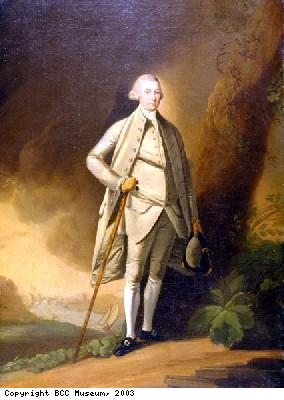
Description:
Portrait of William Prattinton of Bewdley, attributed to Edward Alcock (c. 1770). Prattinton was a merchant from Bewdley in Worcestershire. He imported Caribbean goods (such as mahogany wood) from Bristol to Bewdley up the river Severn.
Creator: Edward Alcock
Date: c. 1770
Copyright: Lent to Bristol Museum and Art Gallery
Advertisement, turtles for sale
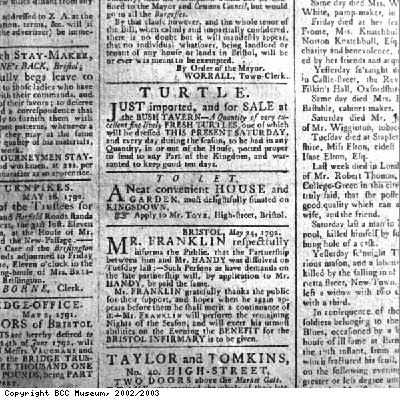
Description:
Advertisement from Felix Farley’s Bristol Journal, for the sale of turtles. Live turtles were brought back on ships from the Caribbean, and killed as required. Their meat was eaten as a delicacy and their shell was used to make hair combs, jewellery and other decorative items.
Creator: Felix Farley's Bristol Journal
Date: 26th May 1792
Copyright: Copyright BCC Museum
Tobacconists shop
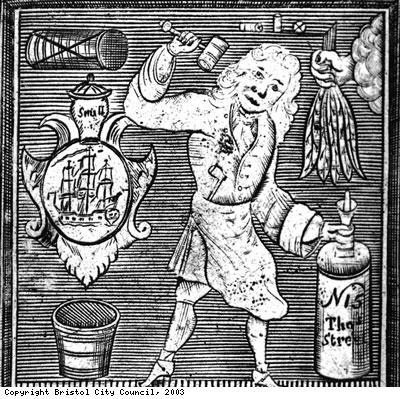
Description:
Tobacconists shop, from a tobacco wrapper of Baker and Bush, Bristol.
Creator: Baker and Bush
Copyright: Copyright BCC Museum
Bill of lading for tobacco
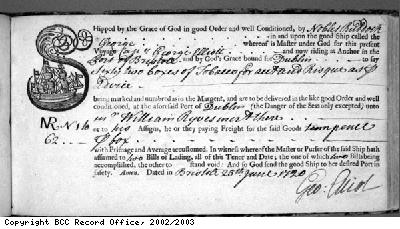
Description:
Bill of lading for tobacco for export from Bristol to Ireland, shipped by Noblet Ruddock to Dublin, 1720. Ruddock was a merchant with many trading interests. He invested in the trading of slaves and he dealt in slave-produced goods such as sugar and tobacco.
A bill of lading is an official record of goods being carried on a ship.
Creator: Noblet Ruddock
Date: 1720
Copyright: Copyright BCC Record Office
The Tomb of Robert Aldworth and his Wife
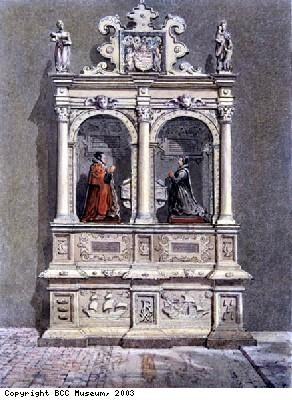
Description:
The Tomb of Robert Aldworth and his Wife Martha in St Peter’s Church, 1825, by Edward Cashin. Robert Aldworth owned Bristol’s first sugar processing house. The painting of his tomb shows the sugar loaves carved on it. These can be seen at the bottom right hand corner of the tomb.
Creator: Edward Cashin
Date: 1825
Copyright: Copyright BCC Museum
Object ID:M2667
Larder with sugar loaf
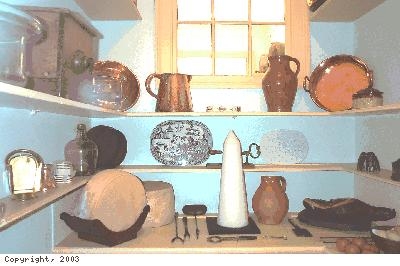
Description:
Photograph of a Georgian larder. This larder is in the Georgian House, Great George Street, Bristol, which was the former home of sugar merchant and plantation owner, John Pinney. The house is now a museum. The photograph shows a white sugar loaf in the centre and various domestic items of stoneware, copper and glass.Sugar produced by slaves on the Caribbean plantations was processed in Bristol.The finished product was a large crystalised loaf in the shape of a cone.
Creator: Elizabeth Rhodes/Roger Vaughn
Date: 2003
Copyright: Elizabeth Rhodes
Account of sugar sales
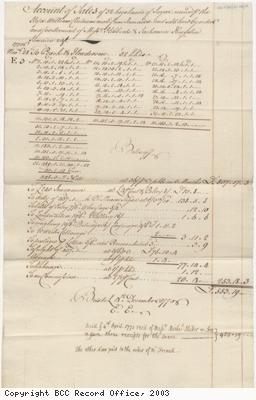
Description:
Account of sugar sales, 1770, of Miller and Co to John Hugh Smyth. The account is for sugar shipped from the Spring Plantation (owned by the Woolnough family) in Jamaica to Bristol.
Date: 1770
Copyright: Copyright BCC Record Office
Object ID:AC/WO/16(50)hiii
Tea caddy
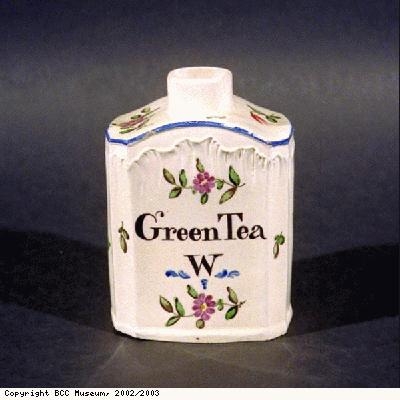
Description:
Tea caddy by Wedgwood, inscribed Green Tea. The demand for sugar was linked to the taste of tea, as sugar made the naturally bitter drink more pleasant to drink. Sugar was produced by slaves on the Caribbean plantations. Josiah Wedgwood was a supporter of the Abolition.
Creator: Wedgwood
Date: unknown
Copyright: Copyright BCC Museum
Object ID:N 4120
King’s Weston to the Bristol Channel
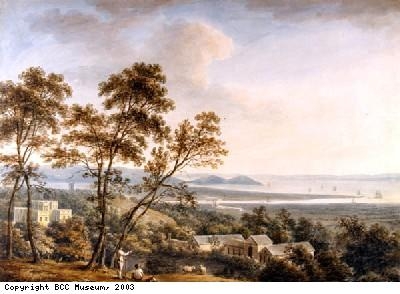
Description:
View over King’s Weston to the Bristol Channel (c.1785) by Nicholas Pocock. Ships waited at the mouth of the Avon for a favourable tide.
Nicholas Pocock was an artist and sailor who drew pictures of ships, featuring slave trading on the coast of Africa.
Creator: Nicholas Pocock
Date: c. 1785
Copyright: Copyright BCC Museum
Object ID:K2392
List of slaves on Spring Plantation 1782
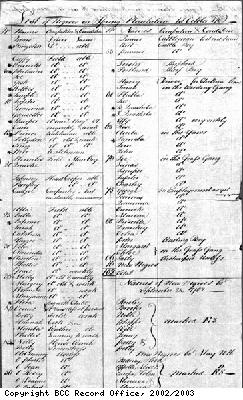
Description:
List of slaves on the Spring Plantation, Jamaica, as at October 1782.
Creator: Spring Plantation
Date: October 1782
Copyright: Copyright BCC Record Office
Page 346 of 352 pages « First < 344 345 346 347 348 > Last »

